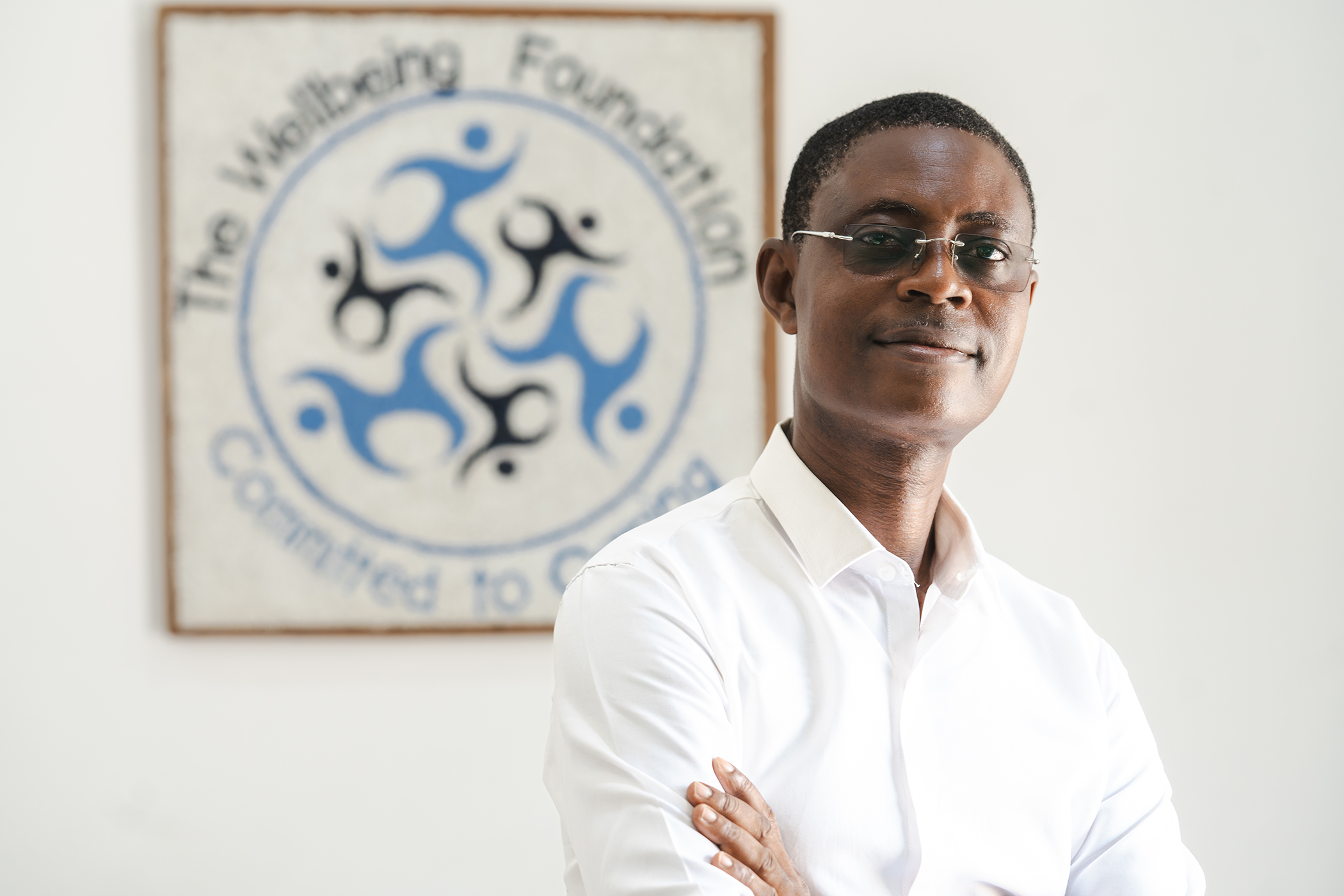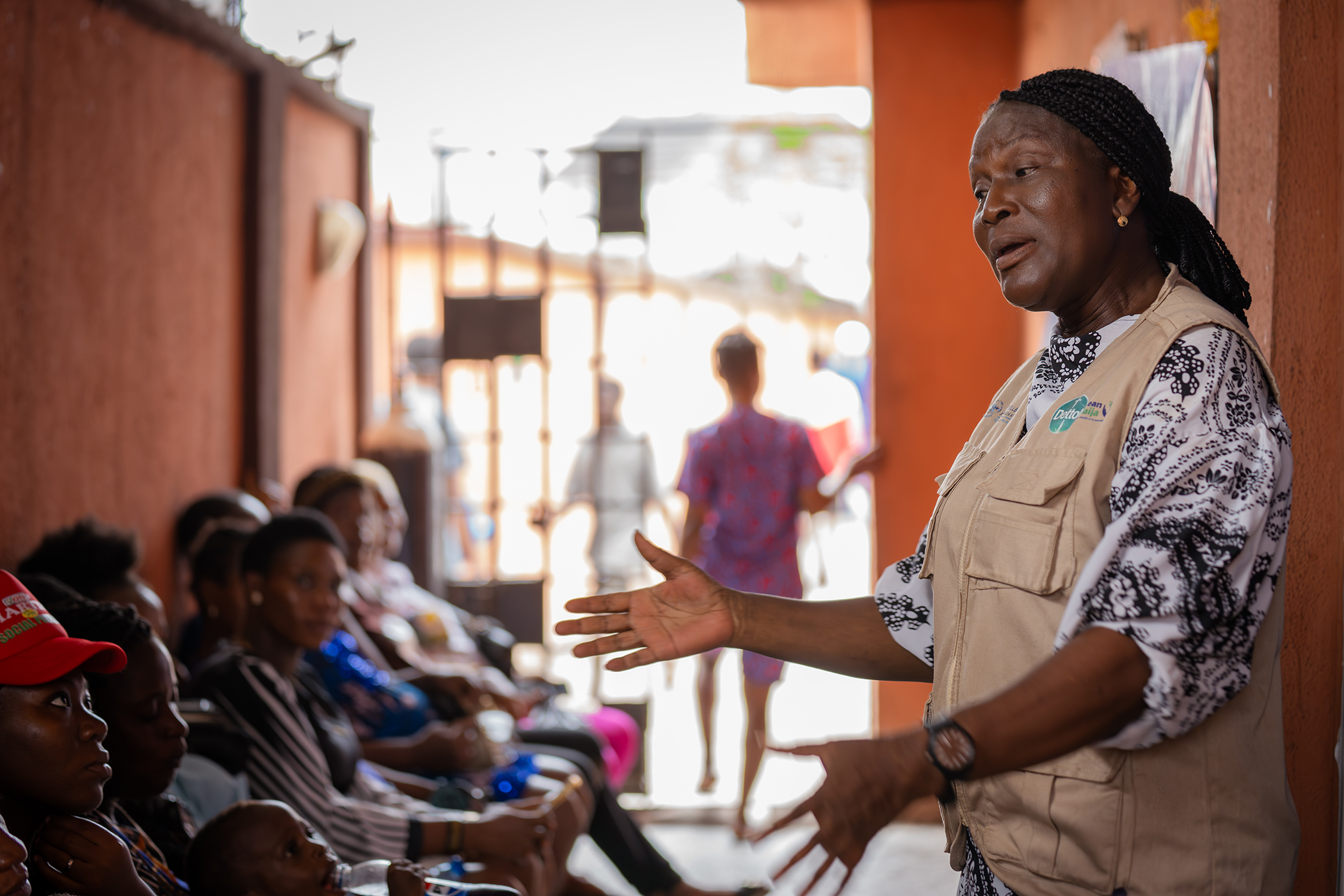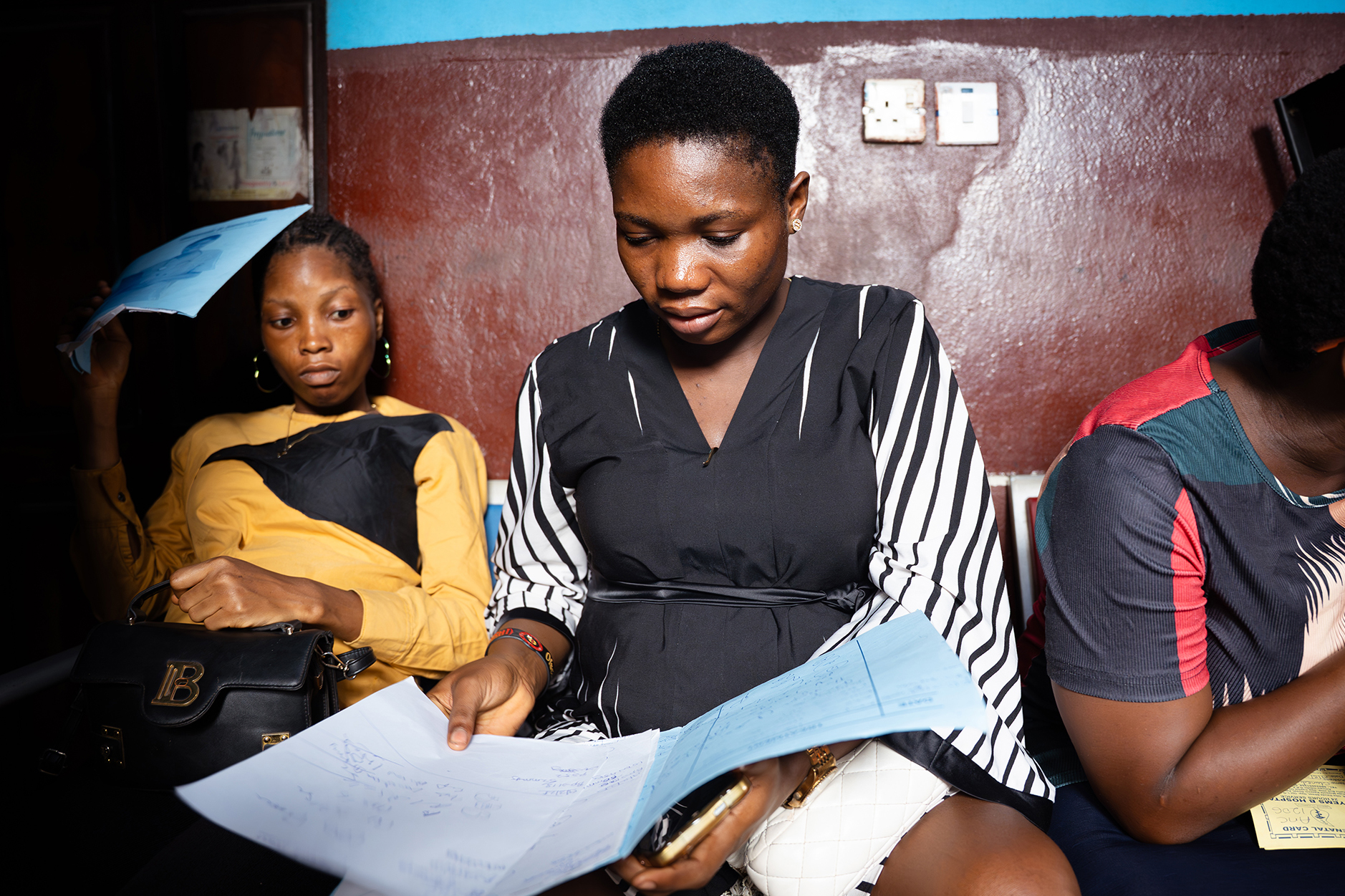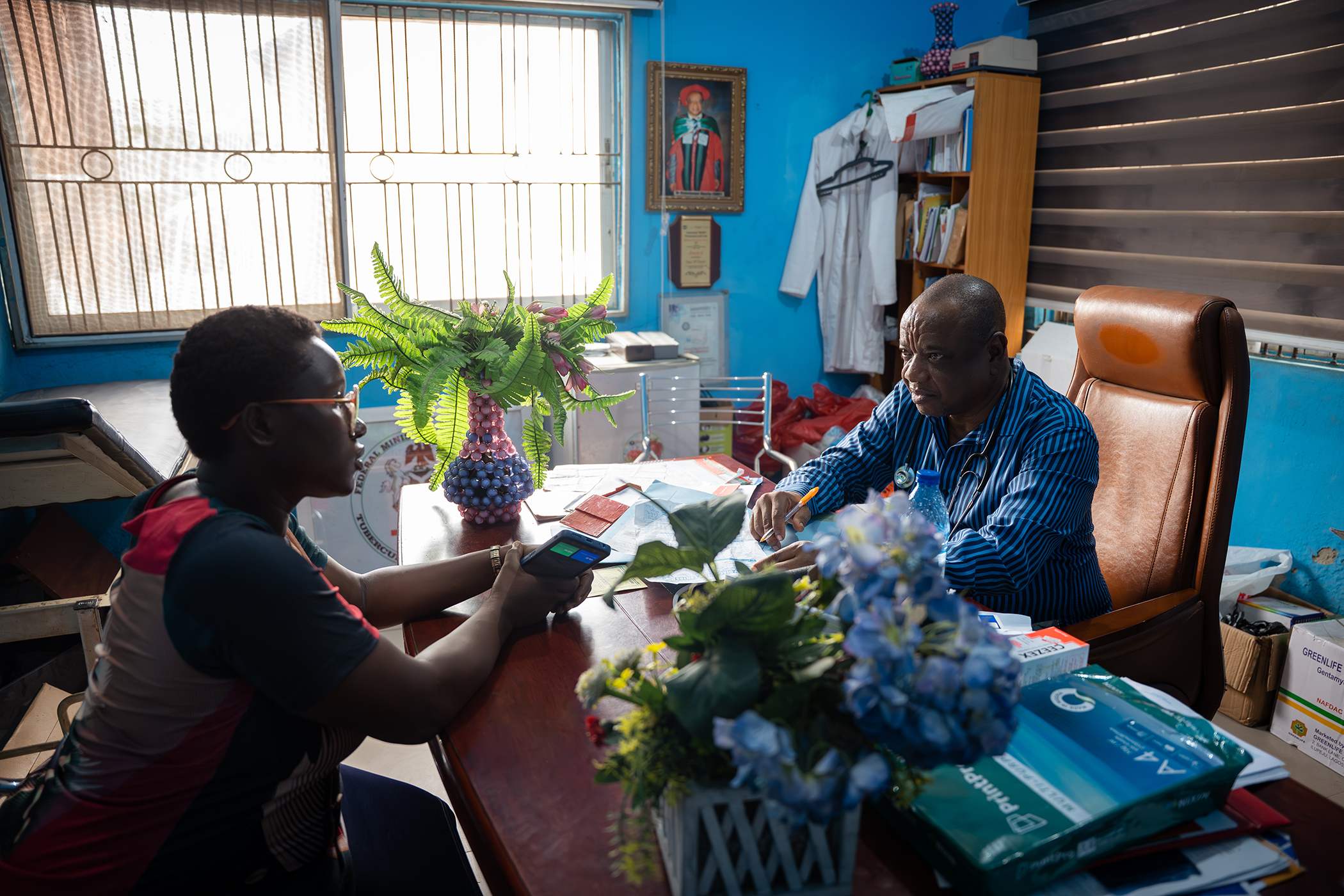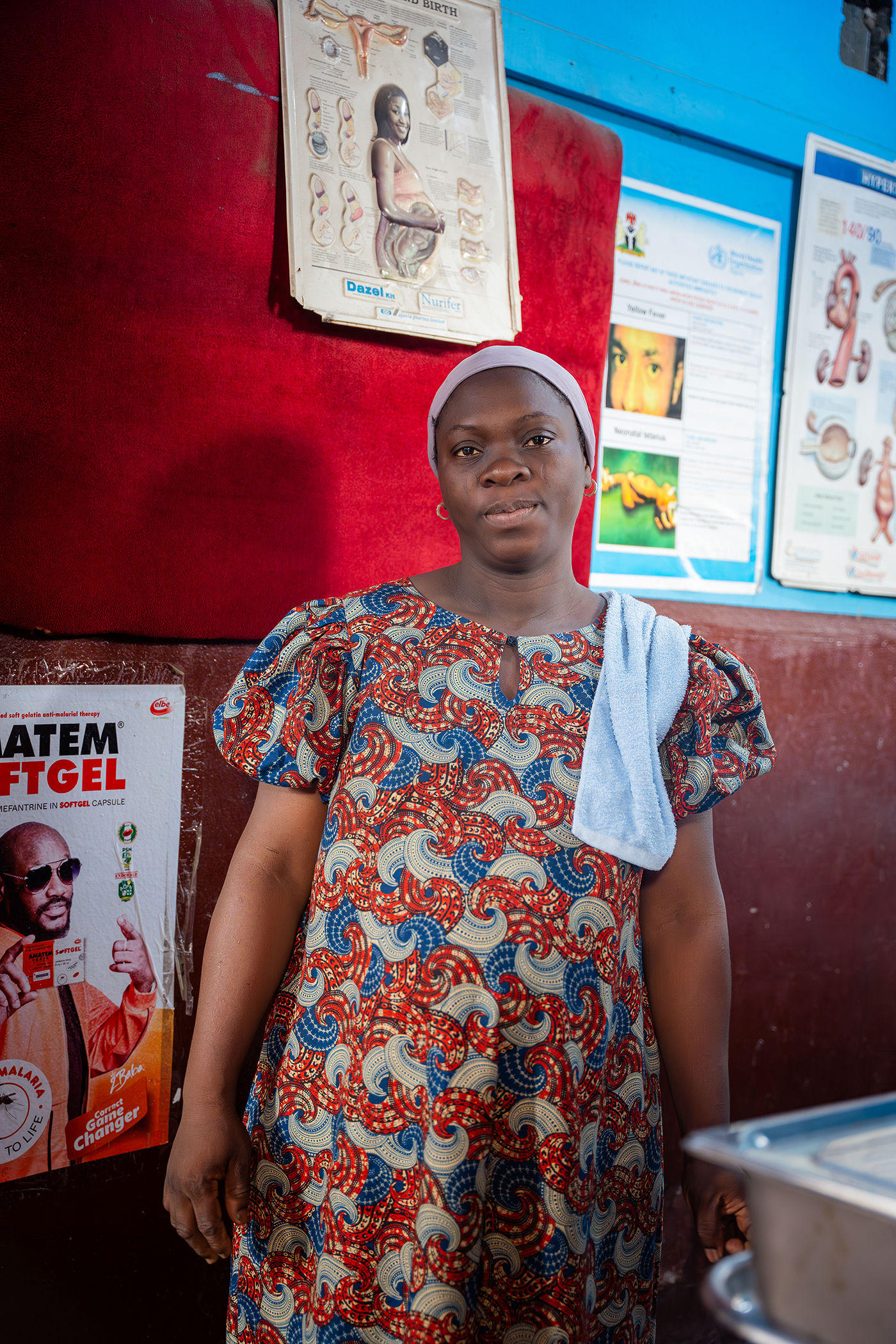Nigeria is currently facing a daunting maternal and child health crisis. The country’s levels of maternal and child mortality are among the highest in the world, with maternal mortality representing 20% of the global burden. In 2017, the World Health Organization (WHO) Africa Region estimated Nigeria’s maternal mortality rate was estimated at 917 per 100,000 live births. Fast forward to 2020, it increased by nearly 14% to reach 1047 deaths. This meant that out of every 100 births in 2020, at least one woman lost her life due to complications during pregnancy or childbirth.
Infant and under-five mortality rates data by UNICEF also paints a grim picture of the situation. One Nigerian child of every 13 born dies before reaching age one, and one in every eight does not survive to their fifth birthday.
These hard hitting facts position Nigeria as a country where nearly 20% of all global maternal deaths occur and the factors contributing to this crisis are multifaceted. Many women in the country lack the resources and access to maternal and newborn healthcare (MNH) services, and on top of that, cultural beliefs and societal norms are exacerbating the risks involved during pregnancy and postpartum stages.
 Expectant mothers listen to an antenatal care session facilitated by WBFA at a private hospital in Lagos, Nigeria in March 2025. The classes are held every two weeks by a midwife who shares tips and advice to keep mothers and children safe and nourished.
Expectant mothers listen to an antenatal care session facilitated by WBFA at a private hospital in Lagos, Nigeria in March 2025. The classes are held every two weeks by a midwife who shares tips and advice to keep mothers and children safe and nourished.
Nevertheless, amidst these challenges, the Wellbeing Foundation Africa (WBFA) is creating hope through its MamaCare360 program, which not only addresses the maternal and newborn mortality crisis but also promotes dignity and autonomy of women during childbirth.
The MamaCare 360 program is a WBFA initiative focused on providing comprehensive healthcare support to mothers, particularly in underserved communities, throughout every stage of their journey - from pregnancy to early motherhood. By integrating medical care, education, and community support, WFBA is ensuring that mothers receive the help they need to have safe and healthy pregnancies.
“MamaCare360’s approach is unique in addressing maternal health challenges, particularly in underserved communities,” said Ayotunde Williams, Director of Programmes at WBFA. “By combining in-person engagement with digital midwifery and personalized education, we’re able to provide mothers with continuous support and build trust that leads to better outcomes.”
With education as one of its cornerstones, WBFA’s flagship program — the MamaCare Antenatal and Postnatal Education Programme runs weekly workshops led by qualified midwives across seven states in Nigeria - Lagos, Kwara, Abuja, Cross River, Osun, Kano and Sokoto.
“These structured education sessions have helped mothers make more informed decisions about their health and their babies’ wellbeing,” Williams added. “The program not only builds knowledge but also community — a space where mothers can share experiences and feel supported by both peers and professionals.”
These workshops cover important topics on family planning, sexual, reproductive, maternal, newborn, child, and adolescent health and nutrition (SRMNCAH+N) as well as promote water, sanitation and hygiene (WASH) behaviours. With the overall goal of reducing maternal and child mortality rates in Nigeria, the programme empowers mothers with the right information and access to vital healthcare services to make informed decisions regarding their health and that of their children.
Outside of physical consultations for expectant and nursing mothers, WBFA is also improving access to vital healthcare education and providing real-time-emergency-response through its Digital Midwifery Service.
 (L)With over 20 years at WBFA, Eunice Akhigbe oversees the Mamacare 360 platform on WhatsApp, which allows mothers to take part in their own care. (R) Eunice Akhigbe is pictured at the WBFA offices in Lagos, Nigeria in March 2025.
(L)With over 20 years at WBFA, Eunice Akhigbe oversees the Mamacare 360 platform on WhatsApp, which allows mothers to take part in their own care. (R) Eunice Akhigbe is pictured at the WBFA offices in Lagos, Nigeria in March 2025.
Another critical but commonly overlooked aspect of maternal healthcare is the range of mental health conditions that arise during pregnancy and up to one year postpartum. These conditions include depression, anxiety, post-traumatic stress disorder (PTSD).
A study published by African Health Sciences in 2020 revealed that the prevalence of postpartum depression (PPD) in western Nigeria ranged from 14.6% to 23.0%. Two separate studies in southeastern Nigeria also found a low prevalence of 10.7% in one study and a higher prevalence of 30.0% in the other. In northern Nigeria, the reported prevalence rates were notably high, at 21.8% and 44.5%.
Just like maternal and child health crisis, Postpartum depression (PPD) is influenced by similar socio-demographic and obstetric factors such as Unplanned pregnancies, pregnancy complications and history of abortions. Additional risk factors include previous history of mental health disorders, stress and marital issues.
By recognising this aspect of maternal healthcare, WBFA’s MamaCare360 program takes a unique approach to help women in these situations through counselling, peer support groups, and community outreach initiatives in different states in Nigeria.
 The WBFA vest is pictured on midwife Hannah Idowu during a community visit around Lagos, Nigeria in March 2025.
The WBFA vest is pictured on midwife Hannah Idowu during a community visit around Lagos, Nigeria in March 2025.
Since its inception in 2004, WBFA has been committed to achieving better maternal and child health outcomes in Nigeria and in Africa. So far, the organization’s MamaCare360 program has impacted the lives of over 420,000 pregnant women and 212,720 nursing mothers. Its Digital Midwifery Service has over 9,000 mothers spanning 31 WhatsApp groups.
And the results? WBFA has improved access to quality maternal healthcare services for women, increased awareness and acceptance of respectful maternal care practices, and reduced the prevalence of postpartum depression and anxiety through mental health support for new mothers. It has improved the capacity of midwives and healthcare workers to provide Emergency Obstetrics and Newborn Care (EmONC).
While Nigeria faces daunting challenges in maternal and child health, initiatives like the MamaCare360 program is making strides in reducing maternal mortality rates and enhancing the overall wellbeing of women and children across the nation. Continued investment in such programs is essential for sustained progress in combating Nigeria's maternal and child health crisis.
 WBFA digital midwives Hannah Idowu (left) and Eunice Akhigbe (right) walk with Ashiata Maku (center) and her 10-month-old baby during a home visit as a part of the Mamacare360 program, in Lagos, Nigeria, March 18th 2025.
WBFA digital midwives Hannah Idowu (left) and Eunice Akhigbe (right) walk with Ashiata Maku (center) and her 10-month-old baby during a home visit as a part of the Mamacare360 program, in Lagos, Nigeria, March 18th 2025.
Editor’s Note: This article is part of a content series that was made possible with funding from the Susan Thompson Buffett Foundation.
